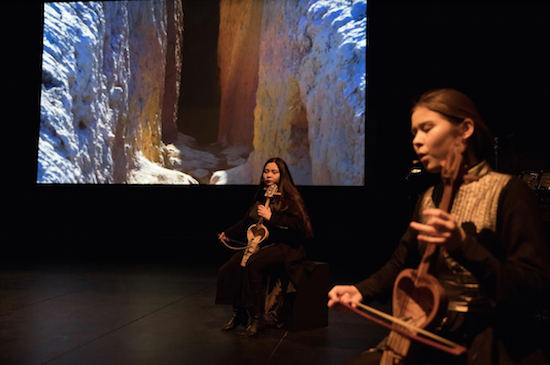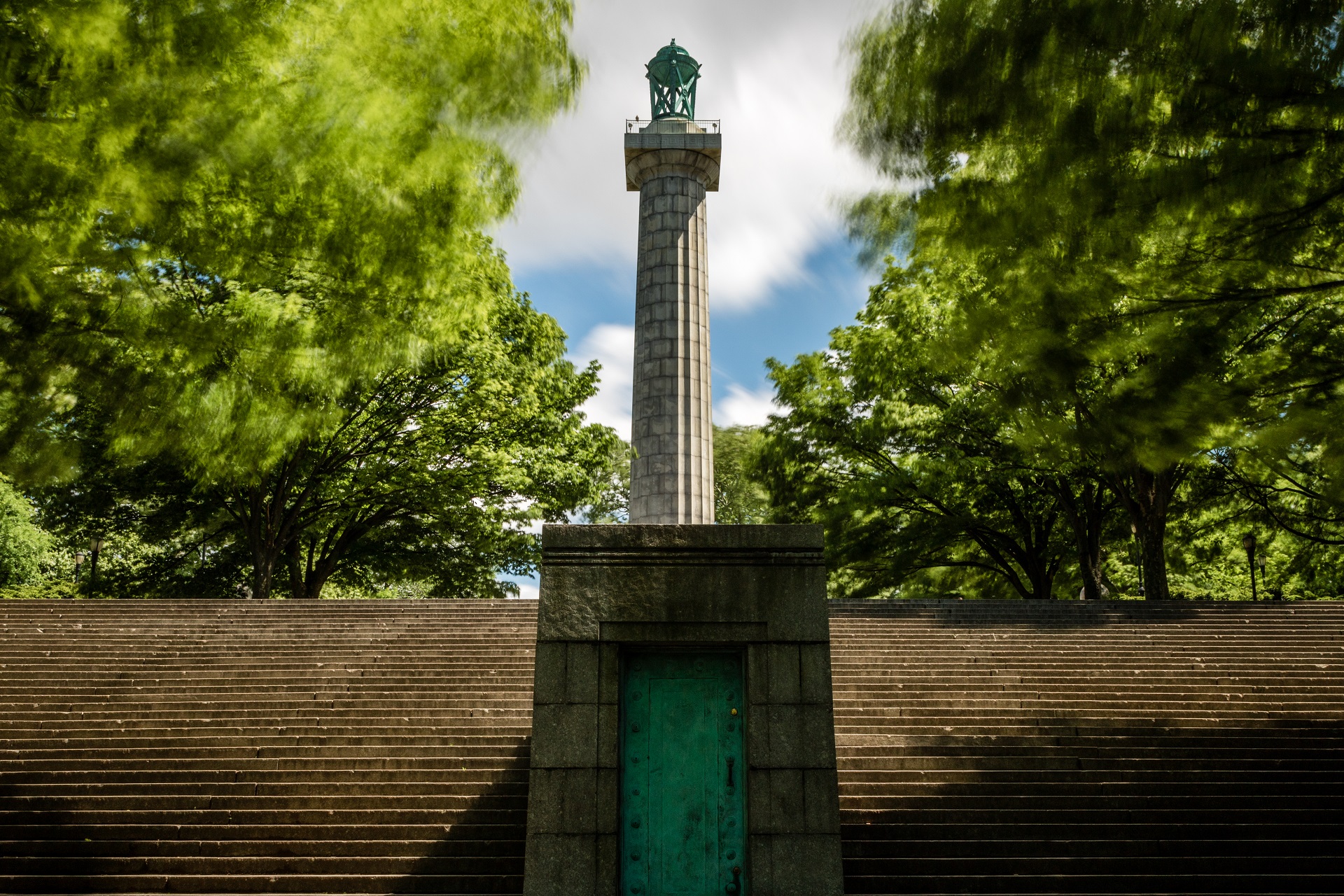‘Qyrq Qyz’ projects girl power through an ancient epic at BAM

Thousands of years ago, 40 teenage girls — warriors armed with bows, arrows and a fighting spirit — defended an island in the Aral Sea from foreign invaders. Such is the legend of “Qyrq Qyz,” or “40 Girls,” an epic poem that has persisted through thousands of years in the remote desert that today lies athwart the border between Uzbekistan and Kazakhstan.
Today the Aral Sea, much of which was drained away by Soviet irrigation authorities, is almost gone. And the female warriors who once protected the Aral are now absent in a region where religion dictates male dominance.
But the story is an enduring facet of Central Asian culture that most people there are still familiar with, says Saodat Ismailova, an Uzbek filmmaker who collaborated with the Aga Khan Trust for Culture in a hybrid musical presentation of the epic poem at the Brooklyn Academy of Music (BAM) on March 23 and 24. A dark stage, traditional stringed instruments and haunting vocals framed rich visuals shot in Karakalpakstan, an autonomous republic in Uzbekistan.
